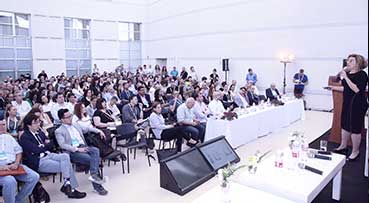I’m writing this column on my old Dell XPS computer, but there’s no way I’ll buy the new computer I’m looking for from Dell. Simply put, Dell does not align with my work style, my need to be productive, or the tools required to manage a distributed global team. Since they don’t support these essentials as an employer, it’s hard to believe they’ll know how to cater to my needs as a customer. Thus, without realizing it, Dell’s new Return to Office (RTO) policy not only undermines its ability to attract and retain the right talent but also potentially damages its relevance in a rapidly changing business landscape.
Hybrid work challenges us and everything we’ve learned about managing work and people. If you’re also facing this challenge by reverting to outdated practices, you should really read on.
Many organizations are losing ground in the RTO initiative, as employees decisively express their preferences for remote work. Yet, these companies seem to miss that a new era of work has firmly taken root—one that’s here to stay. This disconnect is especially problematic for businesses serving a customer base that thrives on flexibility and innovation.
Last week, Dell unveiled a somewhat unconventional RTO policy. While maintaining a hybrid work model requiring employees to be in the office three days a week, Dell made it clear that those preferring to work entirely remotely could see their job prospects within the company—promotion and advancement opportunities—dwindling. Essentially, Dell’s policy institutionalizes “Proximity Bias,” a scenario where managers favor employees who work onsite, potentially sidelining remote workers.
Dell’s new policy will turn out to be a significant misstep both for the organization as well as for the business:
Internally, Dell risks alienating a segment of its workforce that excels in a flexible work environment. For these employees switching jobs can be as straightforward as changing an email address. If they’re skilled and deserving of a promotion that Dell restricts, they’ll simply seek opportunities elsewhere. This scenario could leave Dell with two categories of employees: those who conform to office-based work and those who work remotely but lack ambition or the desire for continuous growth. Over time, both groups are likely to fall behind in adopting new work methodologies and tools designed for a networked world that values creation over mere presence at a location.
Moreover, Dell’s stance on remote management sends the wrong signal to its managers. By not prioritizing the development of skills necessary for managing dispersed teams, Dell risks preparing its managers for a past era rather than the future of work. Dell managers aren’t encouraged to learn how to engage, connect, and build relationships beyond the constraints of time and space, nor are they pushed to excel in defining outcomes or measuring output. Essentially, they’re being told that sticking to the old playbook—prioritizing those who are physically present—is sufficient. As the talent pool becomes increasingly global, dispersed, and proficient in digital collaboration across various time zones and locations, Dell’s managers may find themselves ill-equipped to lead effectively in this evolving landscape.
However, there’s an even larger, external concern with Dell’s policy that seems to have escaped the company’s leadership. Dell’s customers mirror its employees: they are individuals constantly on the move. These customers also seek the assurance that they can work and remain productive from any location.
Indeed, on its website, Dell promotes its products as enablers for this new era, stating: “That’s why we adopt a human-centric approach to creating intelligent solutions, empowering both users and IT to work and innovate from anywhere. The future of work has evolved, and employees now have new expectations for the technologies that drive their workday, particularly in remote settings.”
There seems to be a disconnect between this promise and the reality of their internal policies. Therefore, as I contemplate my next laptop purchase, Dell’s commitment to supporting a work-from-anywhere ethos is in doubt. How can a company that restricts its own employees’ flexibility understand and meet the needs of customers like me?
This situation should serve as a wake-up call for Dell’s leadership. The RTO policy risks more than just talent retention and recruitment; it jeopardizes Dell’s connection with a customer base that expects solutions for a flexible, digitally driven work environment. Navigating the complexities of remote work is challenging, involving more than just managing dispersed teams—it’s about fostering engagement, motivation, and productivity without the benefit of physical presence. This has become a staple for global companies and will remain a defining characteristic of the future work landscape.
Embracing this reality rather than reverting to familiar yet outdated modes of operation is vital for any organization aiming to thrive in the digital age. Dell, and companies like it, would do well to remember that as they navigate the shifting expectations of both their employees and their customers.

![large-AX1A2125-2[1] large-AX1A2125-2[1]](https://niritcohen.com/wp-content/uploads/elementor/thumbs/large-AX1A2125-21-pnzedcs72atx5aeurqytqdiihxixlq02re9mlz805s.jpg)






